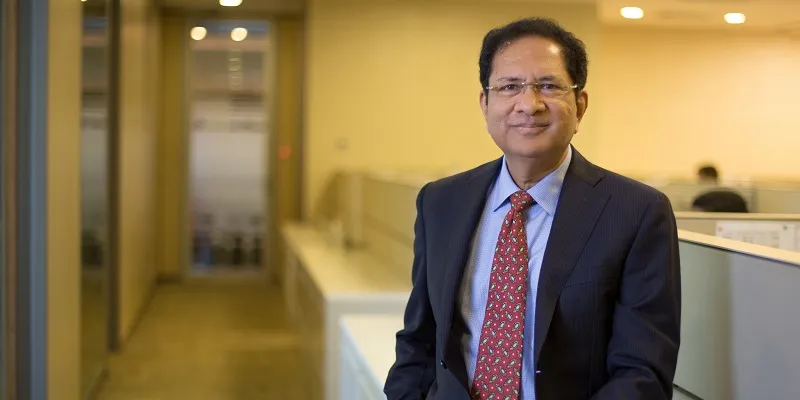TiECon: entrepreneurs should not be burdened with Angel Tax based on outdated valuation methods, says Atul Nishar
Atul Nishar, the President of TiE’s Mumbai chapter and Chairman of Hexaware Technologies spoke to YourStory about changing times and how TiE's flagship event TiECon Mumbai, to be held on February 5 and 6, would help startup founders understand the intricacies of the ecosystem and help them go global. Here are excerpts from the interview.

YS: Tell us about TieCon. What is its aim and what has been the outcome of the conference over all these years?
Atul Nishar: TieCon is a platform for mentoring and learning. Entrepreneurs attend various workshops to learn how to make a better pitch, how to do better marketing and sales, handle regulatory issues and, most importantly, they learn how to scale up. It is a platform for entrepreneurs and investors to meet each other. One gets the opportunity to hear outstanding speakers talking about future trends, success stories and how to succeed in different verticals.
YS: What is this year's theme for the conference? What are the issues that the leaders will want to address?
Atul: This year the theme is “Unexplored” – and discussions will centre around new ideas and innovative business models. As for issues, TiE Mumbai, NASSCOM, and some other organisations have represented to the Government to abolish Section 56 of the Income Tax Act, that levies Angel Tax on the premium received by startups, to factor in modern methods of valuation. The traditional method of discounted cash flow is outdated in the current context of a business being valued on the basis of its ideas, IPs and innovation.
YS: According to you, what is the impact of AI on the industry?
Atul: Artificial Intelligence will transform our world by understanding language, identifying patterns and solving problems. While I believe the concerns and the fear around AI eliminating specific jobs are justified, I am also confident that it would create more jobs in the process. The automation of particular tasks makes them cheaper and quicker. So you would need more human workers to perform other functions in the process that have not been automated. This will enable them to pursue jobs that would be more fulfilling and rewarding.
YS: What are your thoughts on Blockchain?
Atul: Shared, distributed Blockchain ledger enables seamless ownership and transaction verification of digital assets, among other things. In the next couple of years, I expect to see some working applications of Blockchain serving real users, especially in financial services, trade, and supply chain domains.
YS: India is the largest country in terms of data consumption. What do you see as the next wave of growth and why?
Atul: India is huge for data generation and consumption. This shift towards the digital economy is exciting in many ways. At the same time, we cannot afford to ignore increased cybersecurity risks for business as well as personal data. We do need a stronger and more comprehensive regulatory framework and compliance mechanism for data protection and sharing. I advise entrepreneurs to pursue ideas that are scalable and have the potential to excel when executed. There are a lot of great ideas failing because of poor execution. Also, a business is only as good as its management team. Therefore it is important to build a very passionate management team.
YS: What will be the key takeaways from TiEcon?
Atul: The conference will guide startups to steer their business in the right direction. In my view, the focus this time is a special session to address regulatory queries of startups. As part of this, teams from KPMG, DSK Legal and Nishit Desai Associates will be available for one-on-one sessions to address queries on a pro bono basis.







